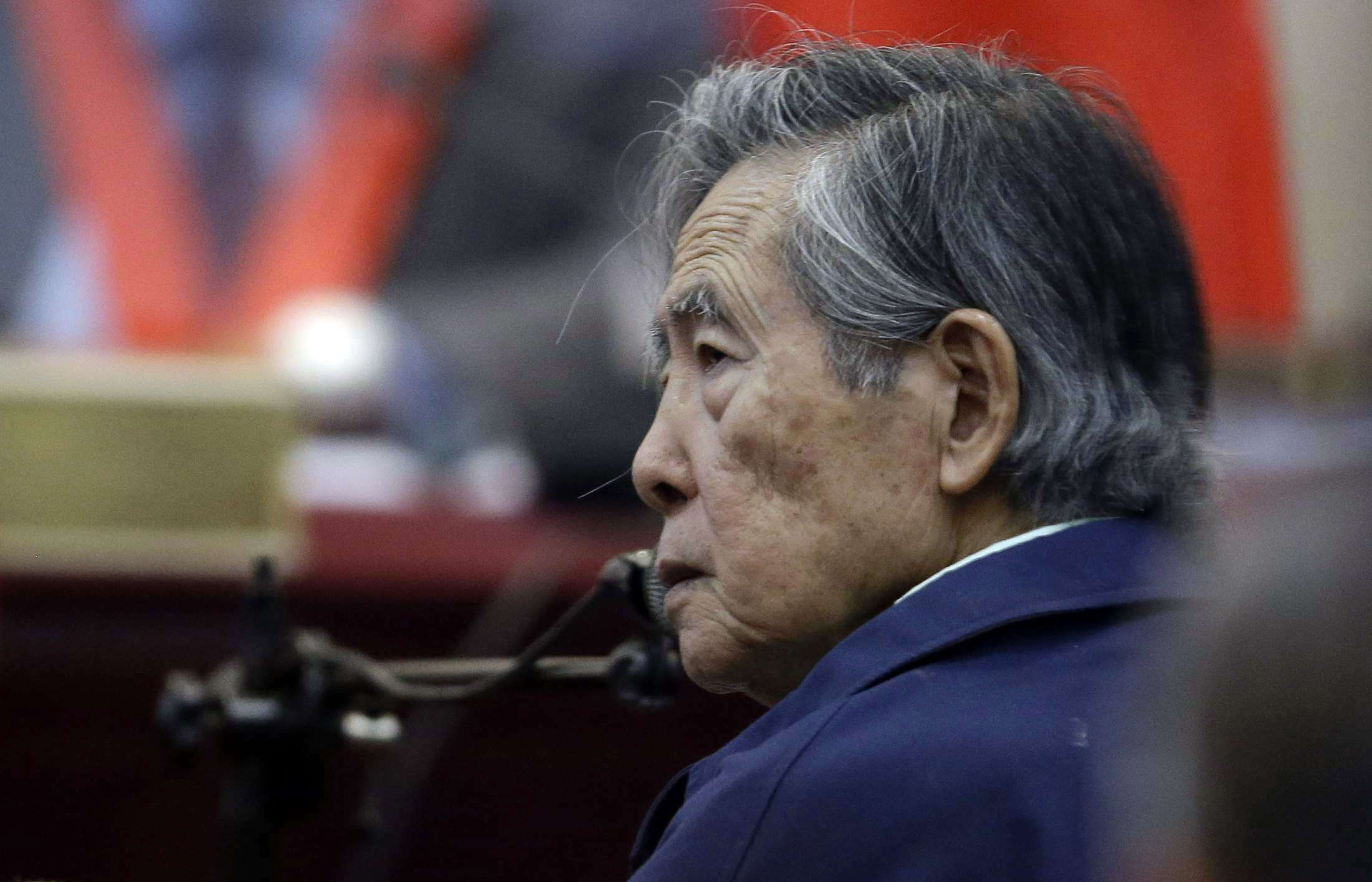
FILE – In this March 15, 2018 file photo, Peru’s former President Alberto Fujimori listens to a question during his testimony in a courtroom at a military base in Callao, Peru. The country’s high court has overturned on Wednesday, Oct. 3, the former strongman’s medical pardon and orders his return to jail. (AP Photo/Martin Mejia, File)
LIMA, Peru — Peru’s Supreme Court on Wednesday overturned a medical pardon for former President Alberto Fujimori and ordered the strongman be returned to jail to serve out a long sentence for human rights abuses.
Images broadcast on local television stations showed the 80-year-old Fujimori getting out of an ambulance with the help of a cane and entering a local health clinic where he has received treatment in the past. He was accompanied by his youngest son Kenji. Various police agents waited outside the clinic.
Former President Pedro Pablo Kuczynski pardoned Fujimori on humanitarian grounds last Christmas Eve in what was widely seen as an attempt to stave off impeachment by courting favor with Fujimori’s allies in Congress. Kuczynski resigned three months later.
Almost from the outset, the ruling was slammed by human rights groups as a “pact of impunity,” while the Inter-American Court on Human Rights had also demanded that Peru review its legality.
The high court in its 224-page decision said the pardon was unlawful because Fujimori’s crimes are considered crimes against humanity, and therefore can’t be pardoned under Peruvian and international law.
The presiding magistrate in the case ordered Fujimori be captured immediately so he can serve out the remaining 14 years of a 25-year sentence for his role in the killing of several civilians, including an 8-year-old boy, during raids by an anti-communist army unit created by his government.
Fujimori’s lawyer said he would abide by the ruling while appealing the decision.
“Today is one of the saddest days in my life,” a weeping Keiko Fujimori, the former president’s daughter and current leader of the conservative Popular Force party, told a group of journalists outside her father’s residence.
Fujimori, who governed from 1990 to 2000, remains a polarizing figure in Peru. Some Peruvians laud him for defeating the Maoist Shining Path guerrilla movement, while others loathe him for human rights violations carried out under his government.
A former mathematics professor, Fujimori was a political outsider when he emerged from obscurity to win Peru’s 1990 presidential election over writer Mario Vargas Llosa.
Peru was being ravaged by runaway inflation and guerrilla violence when he took office. He quickly rebuilt the economy with mass privatizations of state industries. Defeating the fanatical Shining Path rebels took longer but his fight won him broad-based support.
His presidency collapsed just as dramatically as his rise to power.
After briefly shutting down Congress and putting himself into a third term, Fujimori fled the country in disgrace in 2000 after leaked videotapes showed his spy chief, Vladimiro Montesinos, bribing lawmakers. Fujimori went to Japan, his parents’ homeland, and famously sent in his resignation by fax.
Five years later, he stunned supporters and enemies alike when he flew to neighboring Chile, where he was arrested and extradited to Peru. Fujimori’s goal was run for Peru’s presidency again in 2006, but instead he went to trial.
Kuczynski said he was pardoning Fujimori because he suffered a heart condition made worse by prison conditions. /muf